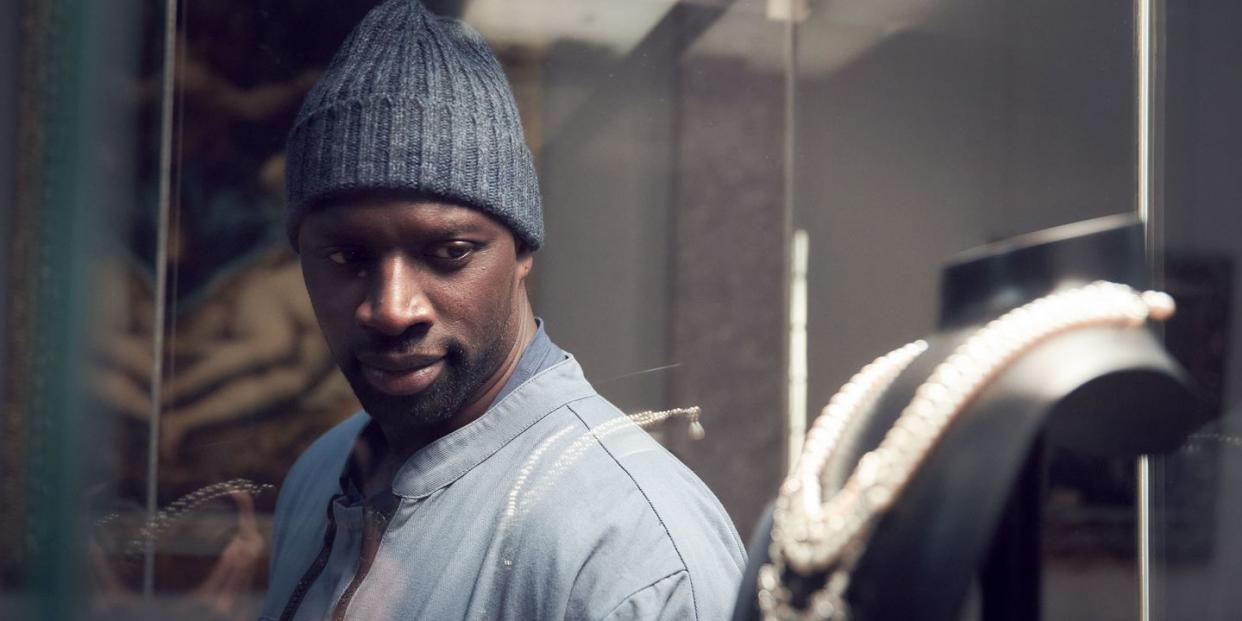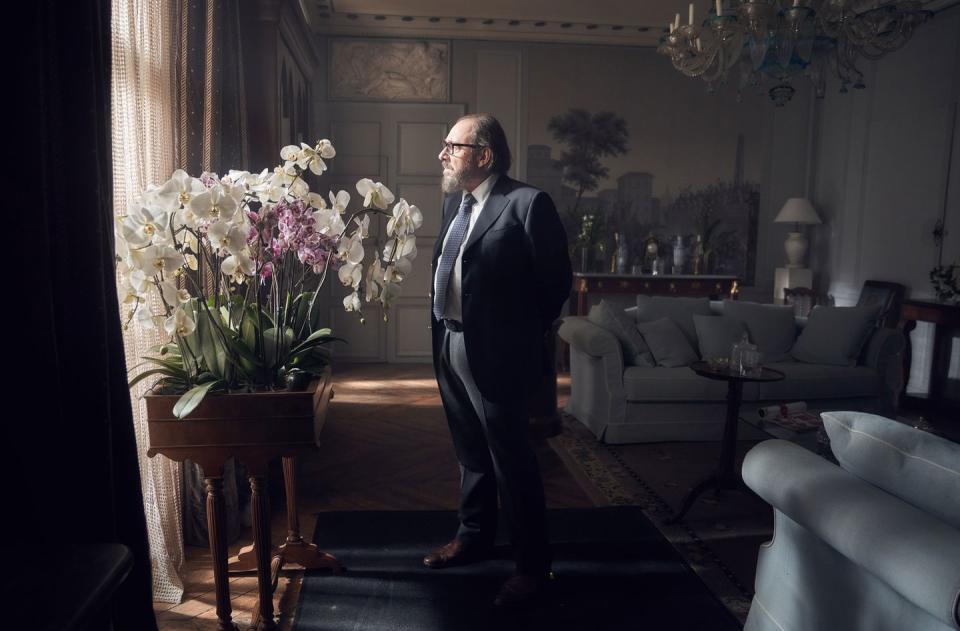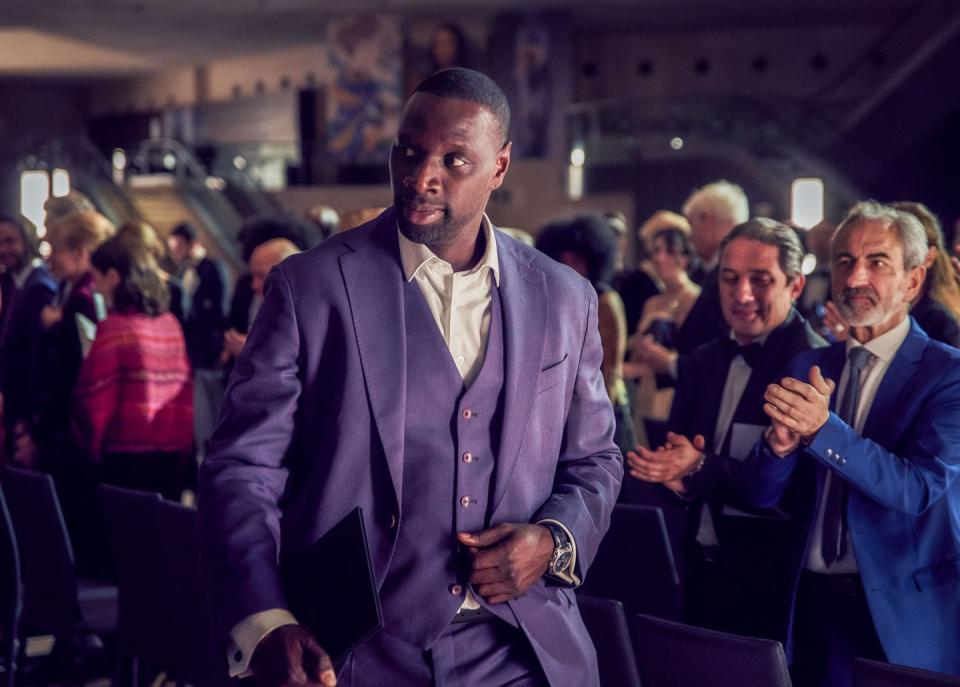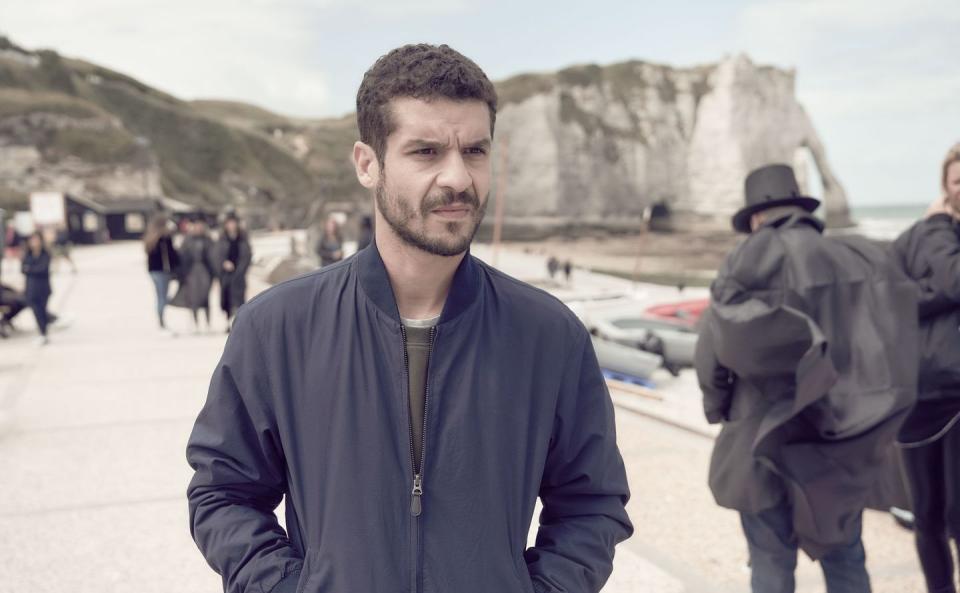Lupin on Netflix - the real reason for its huge popularity

- Oops!Something went wrong.Please try again later.
- Oops!Something went wrong.Please try again later.
Lupin spoilers follow.
When Netflix invests in content, there's no guarantee it will go on to become anything more than a footnote in its vast, ever-expanding catalogue. To all appearances, its roster of shows and movies is bottomless, and while we know that's not really the case, it might as well be because "completing Netflix" is an impossible task for us mere mortals.
Some titles fall through the cracks. But on the flip side, the impact of others can be astronomical, if word of mouth and Netflix's own data (which many are still sceptical of) are to be taken at face value.
When Lupin part one arrived on the platform, it rapidly claimed the number one spot in France's top-ten ranking, which is impressive but unsurprising given that it is a French show that mines the popular tales of Maurice Leblanc's gentleman burglar Arsène Lupin, a beloved staple of the country's literary history which has been passed down from many a parent to child.
But it wasn't just its home nation which was flying the Lupin flag. It became the first French series to land in the US top ten and it snatched second place on the UK list.

From the perspective on this side of the pond, part two has been another success, with the latest batch of episodes currently sat at number two in the rankings. Très bien, indeed.
But why has Lupin captured the imagination on such a grand scale? What lies at the heart of its success?
There are myriad reasons why people are choosing to watch the crime caper over all of the other content that Netflix (and the likes of Disney+ and HBO Max and Amazon Prime, plus traditional broadcasters) are currently serving up.
Obviously Omar Sy, who stars as benign con man Assane Diop, is teeming with charisma and charm. His dazzling smile and warm, full laugh can seamlessly disarm any critic.
In Hubert Pellegrini (Hervé Pierre), we have a villain who we are all unequivocally united against, in turn increasing Assane's stock.

Sure, there's the sweet hit of nostalgia too and the contemporary twist spun by creators George Kay and François Uzan. Its pacing is calibrated to a tee, with timeless themes of family, love and loss at the centre of the tale.
All of the above makes Lupin an irresistible delight, but there is one particular detail, which is undoubtedly its biggest draw, which we haven't yet discussed: in Lupin, there is always a solution.

Whether Assane finds himself behind bars, or he's trapped in the Paris Catacombs, or his son Raoul (Etan Simon) is locked in the boot of a burning car, there is no obstacle which cannot be overcome.
If his own trickery and guile don't suffice, there is always Benjamin the antique dealer (Antoine Gouy), his best friend, or police detective Youssef Guedira (Soufiane Guerrab), who singlehandedly unpacked Assane's real identity while his colleagues were off chasing shadows.
Whatever corner he's backed into or tight spot he finds himself in, this is Assane's world, and all of the other movers and shakers plotting against him are merely players on his (and occasionally his allies') stage.

Jeopardy is a powerful tool, one which Game of Thrones, for example, wielded to maximum effect. Any one of the fantasy saga's extensive cast could be bumped off in a heartbeat, imbuing it with a perpetual tension that kept millions of viewers locked in across its eight-season run. But with Lupin, Assane and his inner circle remain protected, whatever threats and hiccups they encounter. It is a safe space, which sits in stark contrast to the fires raging outside our own front doors, to which there is seemingly no end – or no immediate fix at least.
When the first part of Lupin premiered, we were in the initial throes of the pandemic with no end in sight. Our outlook has shifted slightly, but fear and uncertainty still grip many of us. Having the option to squirrel ourselves away in a world where the protagonist is so totally in control – and has those all-important answers – is a state of being that none of us have experienced during the past 12 months. The likes of Lupin provide a public service like never before.
On a less introspective note, the bigger the pickle, the more we collectively lean forwards to learn how Assane will resolve his latest conundrum. It is escapism, both in the literal and metaphorical sense, and crucially, it ensures that the magic of Arsène Lupin, which is a rarity in our flesh and blood world, remains firmly at the forefront.
Lupin parts 1 and 2 are streaming now on Netflix.
This month, Digital Spy Magazine counts down the 50 greatest LGBTQ+ TV characters since the Stonewall riots. Read every issue now with a 1-month free trial, only on Apple News+.
Interested in Digital Spy's weekly newsletter? Sign up to get it sent straight to your inbox – and don't forget to join our Watch This Facebook Group for daily TV recommendations and discussions with other readers.
You Might Also Like
